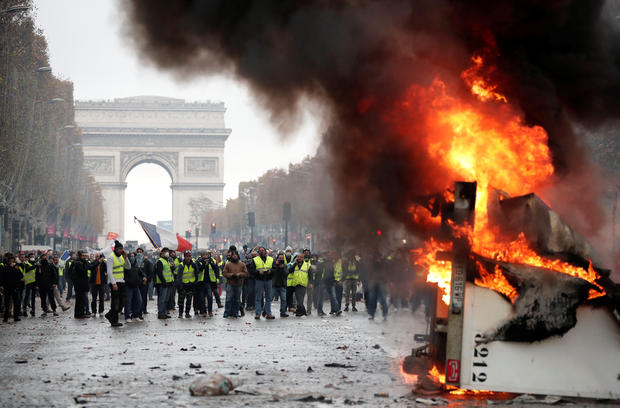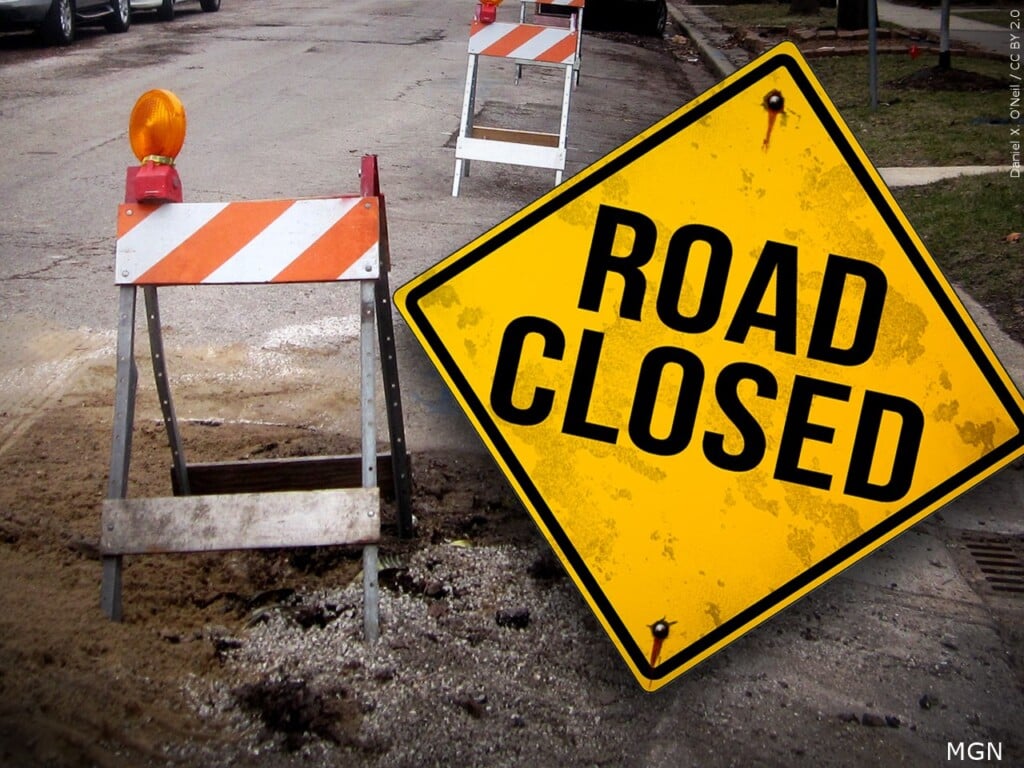Police fire tear gas and water cannons to disperse protesters in Paris
Last Updated Nov 24, 2018 1:38 PM EST
PARIS — French police fired tear gas and water cannons to disperse demonstrators in Paris on Saturday as thousands gathered in the capital and staged road blockades across the nation to vent anger against rising fuel taxes and Emmanuel Macron’s presidency.
Thousands of police were deployed nationwide to contain the demonstrations, including a tense protest at the foot of the Champs-Elysees, where protesters wielded placards reading “Death to Taxes” and upturned a large vehicle. No one was injured in the clashes, but six were arrested for “throwing projectiles,” Paris Police said.
“It’s going to trigger a civil war and me, like most other citizens, we’re all ready,” said Benjamin Vrignaud, a 21-year-old protester from Chartres.
Five thousand protesters flooded the Champs-Elysees alone, with 23,000 protesters in total nationwide, according to Interior Minister Christophe Castaner. Demonstrators in Paris faced metal barriers and a perimeter enforced by police that sought to stop them from getting to buildings such as the prime minister’s official residence, the BBC News reported.
The famed avenue was speckled from the early morning in neon, owing to the color of the vests the myriad self-styled “yellow jacket” protesters don. French drivers are required to keep neon security vests in their vehicles, and now, the vests have become a sort of uniform for the movement against higher fuel costs, the BBC reported.
Protesters wearing yellow vest, a symbol of a French drivers’ protest against higher fuel prices, stand up in front of a police water canon during clashes on the Champs-Elysees in Paris, France, November 24, 2018.
BENOIT TESSIER/REUTERS
Over the past 12 months, the cost of diesel, which is the most common type of fuel used in vehicles in France, has spiked by around 23 percent to an average of €1.51 — the equivalent of $1.71 a liter, according to the BBC.
This year, Macron’s government raised its hydrocarbon tax on diesel by 7.6 cents per liter, while the tax on petrol climbed 3.9 cents. An additional increase set to go into effect on January 1 would see an increase of 6.5 cents for diesel and 2.9 cents for petrol.
Macron has insisted that the fuel tax rises are a necessary pain to reduce France’s dependence on fossil fuels and fund renewable energy investments, which is a cornerstone of his reforms of the nation.
The unrest, however, is proving a major challenge for embattled Macron, who’s suffering in the polls and is the focus of rage for the demonstrators, who accuse the pro-business centrist of indifference to the struggles of ordinary French.
Authorities are struggling because the movement has no clear leader and has attracted a motley group of people with broadly varying demands.
Last weekend, about 280,000 people took part in demonstrations at over 2,000 locations across France. Two people died, more than 600 were injured and at least 50 were arrested, the BBC reported.

A truck burns during a “Yellow vest” protest against higher fuel prices during clashes on the Champs-Elysees in Paris, France, November 24, 2018.
BENOIT TESSIER/REUTERS
© 2018 CBS Interactive Inc. All Rights Reserved. This material may not be published, broadcast, rewritten, or redistributed. The Associated Press contributed to this report.





Leave a Reply